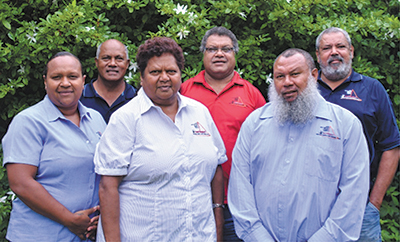Northern Cape York Peninsula and the islands of the Torres Strait is a vast and sparsely populated region that is truly beautiful one day and perfect the next.
Yet every paradise has its snake.
Covering approximately 48,000 sq km, the region is home to Torres Shire Council, Torres Strait Island Regional Council and Northern Peninsula Area Regional Council (NPARC).
NPARC was formed in 2008 by the amalgamation of the shire and island councils of Bamaga, Injinoo, New Mapoon, Seisia and Umagico.
Five councillors now represent the five divisions, one for each of the former entities.
The Mayor is elected across the entire Council area.
In recent years NPARC has had a turnover of staff in key management areas contributing to several years of Financial Statement audit qualification and non-compliance.
Following two years of dedicated hard work NPARC has completed its 2018 Financial Statements within Statutory deadlines and has proudly received a ‘Clean’ audit report.
Council had not previously received an unmodified audit report since 2013 and had never met statutory reporting deadlines.
Compliance will significantly reduce audit fees as well as restore Council’s credibility.
Mayor, Edward Newman, said that the challenge would now be to consolidate and further improve systems and procedures to fulfil the promise of this indigenous community comprising predominately Aboriginal and Torres Strait Islander people.
“Council is justifiably proud of its beautiful region and its ability to achieve great results in an isolated and often ignored area.”
Chief Executive Officer, Stephen Wilton, and Executive Manager Finance, Graeme Gillam, have led an enthusiastic team in pursuit of financial management and reporting excellence.
Mr Gillam who’s work history includes a position with one of Tasmania’s once ‘showpiece’ councils, believes that working with some of the ‘giants’ in management, accounting and asset management had proved invaluable in turning NPARC around.
“The men and women on Council are passionate and devoted to the region and the welfare of their people, and with quality and timely financial management information, they are able to make improved policy, management and budget decisions,” Mr Gillam said.

















